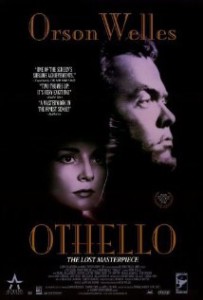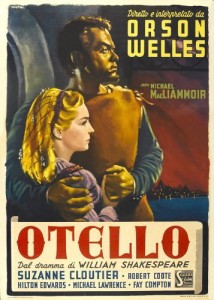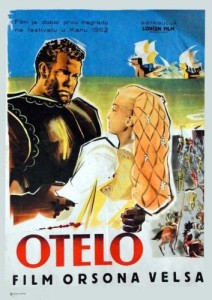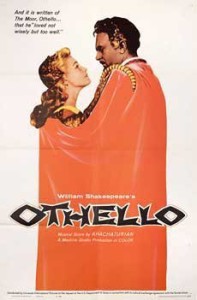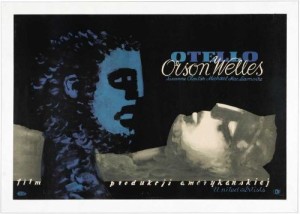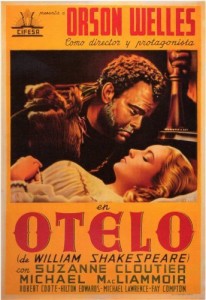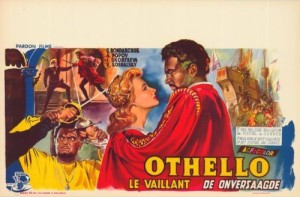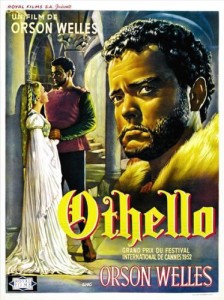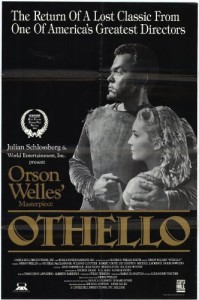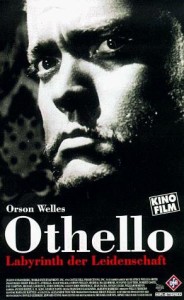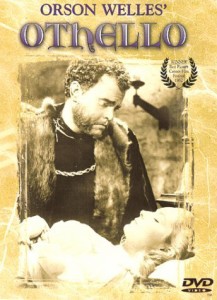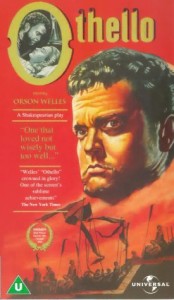Othello **** (1952, Orson Welles, Micheál MacLiammóir, Suzanne Cloutier, Robert Coote, Fay Compton) – Classic Movie Review 2448
Orson Welles gives a noble, layered, tempered performance of great majesty and power as Othello, The Moor of Venice, in his lovingly made film of the William Shakespeare play which won the joint Palme D’Or prize at the Cannes Film Festival in 1952. It tied with a film almost no one can remember – Due soldi di speranza [Two Cents Worth of Hope] (1952).
It was assembled in bits and pieces over three years and production was stopped twice because Welles kept running out of money, which he then topped up with his payments from starring in The Third Man (1949) and Prince of Foxes (1949). When he made The Black Rose in 1950, he borrowed costumes and cameras for use on Othello, infuriating director Henry Hathaway. His character in The Black Rose wears a mink-lined coat that disappeared after the shoot, but reappeared on Welles in Othello.
This scrappy, interrupted filming method partly accounts for the bumpy editing, shaky continuity and muffled sound. But the improvised shooting on locations in Italy and Morocco often works to Othello’s advantage, as in scenes like the killing of Roderigo and Cassio photographed in a Turkish bath when costumes failed to materialise after being impounded due to non-payment.
Michael MacLiammoir is impressively villainous as Iago, though there’s some under-powered playing elsewhere, especially in Suzanne Cloutier’s Desdemona and Fay Compton’s Emilia. Gudrun Ure, who played Desdemona opposite Welles’s Othello on stage, dubbed all Cloutier’s dialogue.
Despite the success at Cannes, where Welles had to show it as a Moroccan film as he was unable to obtain American distribution, there was a three-year delay before its general release.
Welles’s daughter, Beatrice Welles, spent over $1 million on beautifully restoring Othello in 1991 with a complete re-recording of the soundtrack, with re-synced audio, extra sound effects and the score in stereo, and the visuals matched and re-edited, ironing out the technical deficiencies of the original version.
Welles made two versions of the film, one for America and another for Europe, the one that premiered at Cannes in 1952 with the credits spoken by Welles and no narration. The restored Othello is the American version.
© Derek Winnert 2015 Classic Movie Review 2448
Check out more reviews on http://derekwinnert.com

